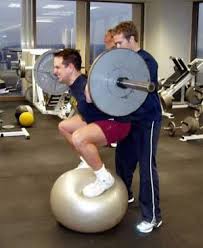A literary
theme I’ve always found particularly interesting is the notion of trading
humanity for power. We saw this
classically with Faust and the typical “deal with the devil”/selling of one’s
soul, but it’s been a persistent theme for centuries and still finds home in
contemporary sources as well. What tends
to be interesting about these instances is that it is either a villain or
someone who begrudgingly makes this sacrifice that is the focus of this theme,
and in both cases, the message conveyed is clear: no rational, heroic, GOOD
person ever makes this sacrifice. You
are either black of soul or put in a situation where you have no other choice
to make this sacrifice, making you either evil or pathetic. But here is what is interesting: heroes are
EXPECTED to make sacrifices: just not THAT one particular sacrifice. Heroes are supposed to sacrifice time,
self-interest, and in many cases glory and riches, in order to achieve heroic
ends: it’s just the sacrifice of humanity that is deemed “unacceptable” due to
the value that we place on humanity as an entity. In this, the message is clear: in order to
make acceptable sacrifices, one must not value those things that are needed to
be sacrificed and, in turn, the power an individual has is the power to alter
their values such that they, ultimately, sacrifice nothing to reach their
goals.

It's a pretty safe bet this guy didn't mind sacrificing his sanity for power
That was a
mouthful, and in full disclosure I was just trying to shoe-horn the title in
there. Breaking it down, it boils down
to this: the value of a thing is fundamentally a quality that YOU can decide
upon. Yes, many other entities can weigh
in on the matter, and some may even weigh heavily in their influence by force
of law or societal pressure to hold the same value as everyone else, but,
fundamentally, the decision on what you value and how much you value it is
ultimately up to you. In turn, this
means that, the degree of significance of what gets “sacrificed” in pursuit of
your goals fundamentally rests within you as well. This is Nietzsche’s “revaluation of values”
in action: a conscious decision to re-order and prioritize the things that you
hold valuable and do so in a manner that fundamentally benefits you and your
goals.
In the
instance of those that sacrifice humanity in order to achieve power, those that
hold humanity in the highest regard will see such a sacrifice as abhorrent:
nothing is worth that. But what if the truth of the matter is that those that
were seeking such power ultimately held little value for humanity. What if they felt humanity was the one thing
holding them back from achieving their goals?
They’d gladly jettison humanity, for power, sure, but hell, maybe for
anything. Maybe they valued it so little
they’d trade it for a sandwich, and they were just happy with how good of a
trade they got on the matter.

Oh please no, anything but that...
This is what
“giving up what others are unwilling to give up” really boils down to. You don’t need to make bigger sacrifices than
others to get ahead: you can simply value things they value less than they
value them. Can you imagine what you
could achieve if you didn’t value your time?
You could train like it was your job, quite literally, spending 8-9
hours in the gym, with prodigious rest periods and insane amounts of
volume. If you didn’t value our
money? Imagine the unfettered access
you’d have to the greatest gadgets and toys, meal plans, etc etc. Don’t value your health or longevity? That is the training equivalent of “trading humanity”:
sacrificing your “self” in order to obtain as much strength as possible. And if none of these things hold any value,
you wouldn’t even really need to sacrifice them at all: it’d be considered a
sucker’s trade. You got something for
nothing, assuming that is how you regard these qualities.
And this
also means having an honest self-assessment when determining a training
plan. People make so many empty claims,
saying things like “I’d give ANYTHING to train at Westside Barbell”, yet when
pressed to quit their job, sell their house, drive across the country to Ohio
and go train there, they rebuke the advice and offer excuses. Be honest: you won’t actually give
anything. In point of fact, you’re
willing to give very LITTLE to train there.
You’d give anything to get jacked…except lift weights 4 days a
week. Ok, then be honest: you’re more
willing to sacrifice getting jacked than you are to sacrifice training only 3
days a week. There’s nothing wrong with
HAVING these priorities: the only issue exists when we refuse to acknowledge
that THESE are the actual priorities.
Sacrifices are for martyrs: we just need to figure out what our values
are here.

Clearly not safety. Or effectiveness. Or dignity.
The big
takeaway is that it’s borderline ridiculous how empowered you are when it comes
to determining your fate. This is
Sartre’s “radical freedom”: terrible, oppressive, choking freedom. It’s far easier to make yourself a slave and
paint yourself as powerless than it is to accept just how much YOU are the reason for your
limitations. And it’s only when we view
our decisions with regret that we find the situation disagreeable: if we are at
total peace with our decisions, we have nothing to regret and have reached our
max power and potential under the conditions we have decided to permit to
ourselves. When we take owernship of the
fact that we have decided that certain things hold higher value than our
success in pursuing a specific goal, there is nothing to lament, but when we
delude ourselves into thinking WE are not the ones that made this decision, the
dissonance between reality and the delusion we live under will constantly cause
frustration. Make the decision, figure
out what you value, and sacrifice nothing.






